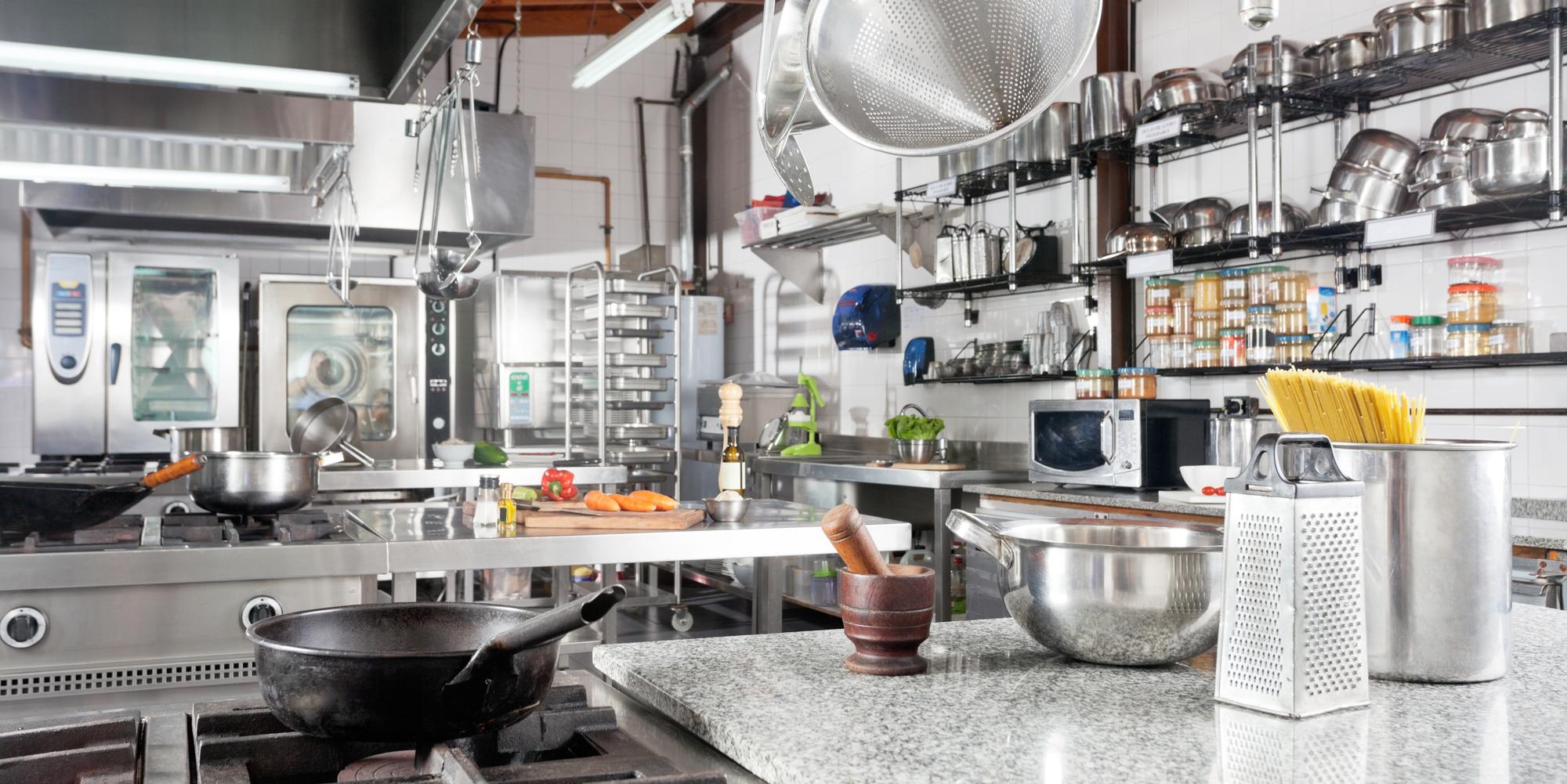There’s more to maintaining a commercial kitchen than keeping appliances working and getting a passing grade from your local public health department. You also have to think about health and sanitation. The more time you spend prioritizing cleanliness and safety, the fewer issues you’ll face down the road.

How to Keep Your Commercial Kitchen Clean
Keeping a commercial kitchen clean takes work, but it’s not as impossible as some might think. Here are several tips to keep your kitchen clean without breaking your back (or losing your sanity).
- Install the Right Parts and Materials
When building out a kitchen or renovating, make sure you’re selecting the right materials. Fiber-reinforced polymer (FRP) wall panels are one good option. They are ideal in restaurant kitchens and other areas that require lightweight and non-corrosive materials. Duramax FRP wall panels are an especially smart option.
- Wipe As You Work
Snow White and the Seven Dwarfs might have whistled while they worked, but your staff should be trained to wipe while they work. Countertops are like magnets for bacteria growth. If you don’t continuously wipe down surfaces, they’ll become safe havens for microbes. (This is even more true in warm environments like kitchens.)
Arm every kitchen worker with rags and keep cleaning supplies within arm’s reach at all times. Disinfectant spray should be applied multiple times per day and anytime in between switching tasks.
- Dish Out Cleaning Responsibilities
If a task is everyone’s responsibility, it’s ultimately no one’s responsibility. Telling your team to keep your kitchen clean is a lot like sending out a group text message to 10 different people asking for help. No single recipient feels a responsibility to reply. Instead, everyone feels like someone else will. The same goes for your kitchen. It’s easy for people to leave it up to someone else.
If you want your commercial kitchen to stay clean, you should give individual responsibilities to each team member. Assign one person the responsibility of cleaning the oven at the end of each shift. Another person might be responsible for disinfecting countertops. It’s another person’s job to keep the floors swept, etc.
Assign different tasks and sections to different staff. Then make sure you follow up and hold people accountable. The more firm you are, the fewer issues you’ll have. People will embrace their responsibilities, rather than trying to get away with doing the least amount of work possible.
- Perform Monthly Deep Cleans
While daily cleaning is a must, you also need to perform monthly deep cleans. These are more thorough cleaning sessions where you address parts, systems, and areas that might not get wiped down on a regular basis. If you have the budget for it, you may want to hire a professional cleaning company to take care of your deep cleaning.
- Adopt the Proper Waste Management Strategy
Chances are, your commercial kitchen produces a lot of waste. From cardboard containers and cartons to food waste and scraps, there’s a lot of waste to manage. Make sure you have a very intentional strategy for safely and hygienically getting rid of it.
Garbage should be removed from your kitchen a minimum of twice per day (and anytime the trash can or bag becomes full). Never place trash – including garbage bags, cardboard boxes, or old containers – next to a trash can. Any trash that’s too large for your inside bins should be taken directly to the outside dumpster.
As for trash cans inside your kitchen, they should be equipped with tight-fitting lids. Keep a hand-washing station and/or sanitizer dispenser next to trash cans to encourage proper hand hygiene after handling garbage.
- Use Safe Cleaning Products
Just because a cleaning product is labeled as “safe” for commercial kitchen cleaning applications, doesn’t always mean it’s the best option. You should aim to keep as many harmful chemicals and toxins out of your kitchen as possible. Opting for green eco-friendly options is always a good idea.
Don’t Compromise on Cleanliness
There are certain areas of running a business where you can cut corners without much risk. However, your commercial kitchen isn’t one of them. There’s no way to fake safety and cleanliness. If you want to run a successful business, you have to make them a priority from the start.
Leave a Reply